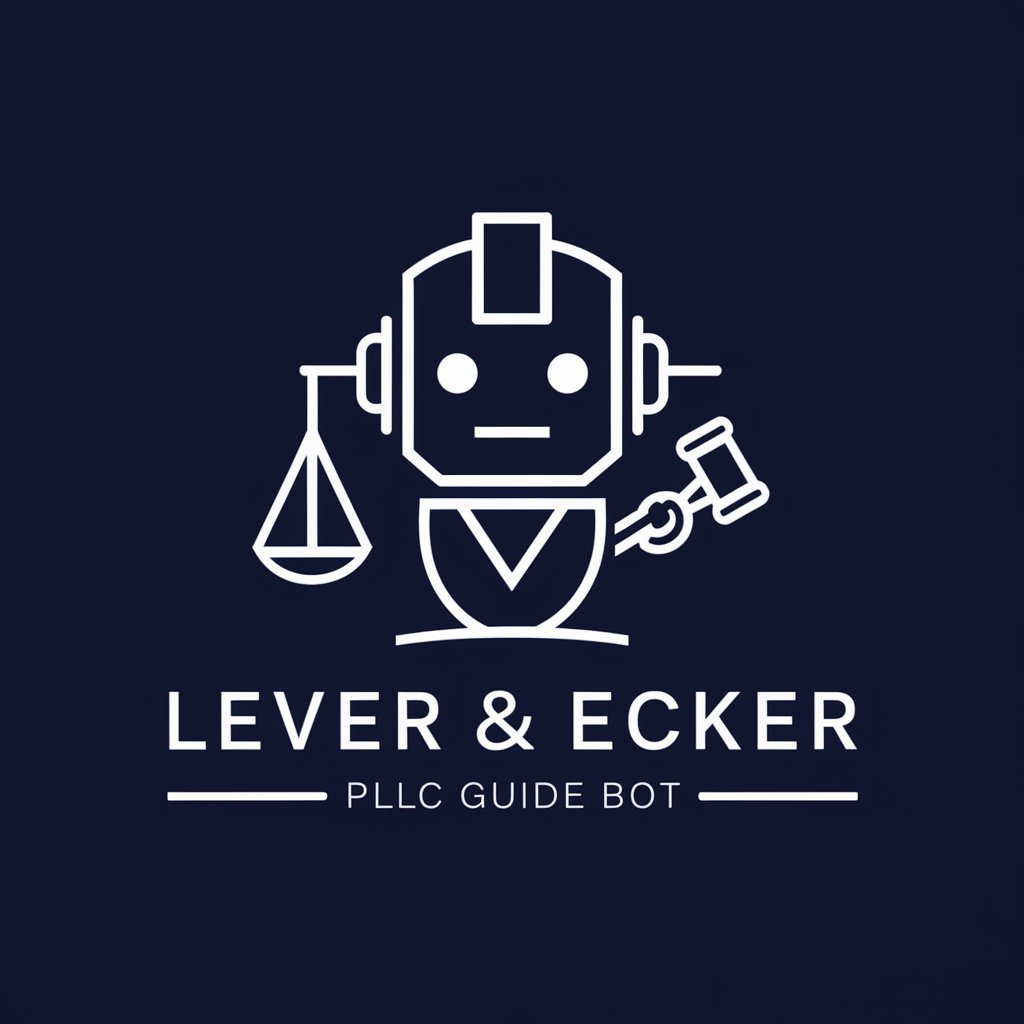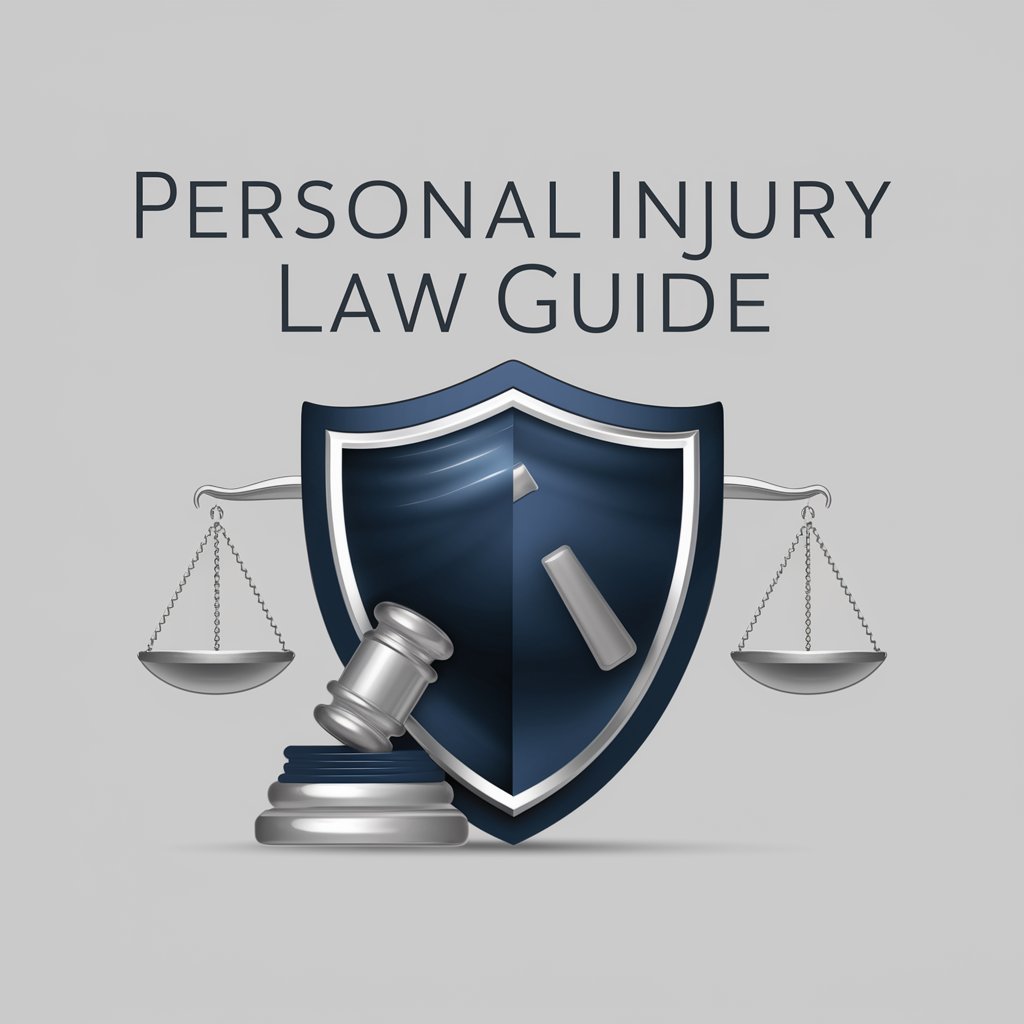4 GPTs for Legal Resource Powered by AI for Free of 2026
AI GPTs for Legal Resource are advanced artificial intelligence tools specifically designed to assist with legal tasks and topics. These generative pre-trained transformers leverage machine learning to provide tailored solutions for a wide range of legal applications, from document analysis and legal research to contract generation and compliance monitoring. By understanding and processing natural language, these AI tools can significantly enhance efficiency and accuracy in the legal domain, offering innovative solutions that are adaptable to the unique requirements of legal professionals.
Top 4 GPTs for Legal Resource are: AbogadoGPT,Escritório Virtual de Direito Previdenciário,Lever & Ecker PLLC Guide Bot,Personal Injury Law Guide
AbogadoGPT
Your AI-Powered Spanish Legal Assistant

Escritório Virtual de Direito Previdenciário
Navigating Brazilian Social Security with AI-Powered Expertise

Lever & Ecker PLLC Guide Bot
Empowering legal understanding with AI

Personal Injury Law Guide
Navigate Injury Law with AI

Key Attributes of Legal AI GPTs
AI GPTs for Legal Resource stand out due to their adaptability, offering solutions that range from straightforward legal inquiries to complex case analysis. Key features include advanced natural language understanding for processing legal documents, the ability to generate legal texts, and capabilities for legal research and compliance checks. Some tools also incorporate technical support, web searching, image creation, and data analysis to provide comprehensive assistance in legal tasks. Their ability to learn and adapt to specific legal contexts and terminologies makes them invaluable for legal professionals.
Who Benefits from Legal AI GPTs
The primary users of AI GPTs for Legal Resource include legal professionals, law students, and legal researchers. These tools are accessible to novices without coding skills, thanks to user-friendly interfaces, while also offering advanced customization options for developers and tech-savvy users in the legal field. By automating routine tasks and providing insights on complex legal questions, these AI tools can significantly enhance productivity and decision-making for a wide range of users.
Try Our other AI GPTs tools for Free
French Training
Unlock the potential of French learning with AI GPTs. Experience tailored lessons, real-time feedback, and interactive exercises designed to enhance your mastery of the French language.
French Exploration
Discover the capabilities of AI GPTs for French Exploration, tailored tools for engaging with French culture, history, and language. Ideal for learners, developers, and professionals seeking specialized knowledge.
Japanese Acquisition
Discover the transformative power of AI GPTs for Japanese Acquisition, your comprehensive solution for mastering the Japanese language through adaptive learning, cultural insights, and personalized feedback.
Japanese Expansion
Unlock the potential of AI with GPTs for Japanese Expansion, designed to cater specifically to the nuances of Japanese language and culture.
Family Nights
Discover AI GPTs for Family Nights: Your go-to solution for enhancing family time with customized, engaging, and educational content tailored to your family's unique interests.
Retro Nostalgia
Discover the transformative potential of AI GPTs for Retro Nostalgia, specialized tools designed to generate, analyze, and engage with content from the past.
Enhancing Legal Workflows with AI
AI GPTs offer customized solutions across different sectors within the legal field, improving efficiency and accuracy. Their integration into existing systems or workflows provides seamless support for legal tasks, enhancing productivity. With user-friendly interfaces, these tools are accessible to a broad audience, enabling legal professionals to leverage AI for a competitive advantage.
Frequently Asked Questions
What are AI GPTs for Legal Resource?
AI GPTs for Legal Resource are specialized AI tools designed to assist with legal tasks by leveraging advanced machine learning and natural language processing technologies.
How can AI GPTs improve legal research?
These tools can process vast amounts of legal data quickly, identify relevant case law and statutes, and provide summaries, significantly speeding up legal research.
Can AI GPTs generate legal documents?
Yes, AI GPTs can draft legal documents, contracts, and letters, tailored to specific legal standards and requirements, saving time and reducing errors.
Are AI GPTs tools accessible to those without coding skills?
Absolutely. AI GPTs for Legal Resource are designed with user-friendly interfaces, making them accessible to users without technical backgrounds.
How do AI GPTs ensure compliance with legal standards?
These tools are programmed with current laws and regulations and are continuously updated, ensuring that the generated content complies with legal standards.
Can AI GPTs be customized for specific legal needs?
Yes, they offer customization options for developers and users with programming skills, allowing them to tailor the tool's functionality to specific legal scenarios or requirements.
What are the limitations of AI GPTs in the legal field?
While AI GPTs provide significant advantages, they cannot replace human judgment in legal decision-making and should be used as a supplementary tool.
How is privacy handled by AI GPTs in legal applications?
AI GPTs for Legal Resource are designed with robust security and privacy protocols to protect sensitive legal information and comply with data protection laws.